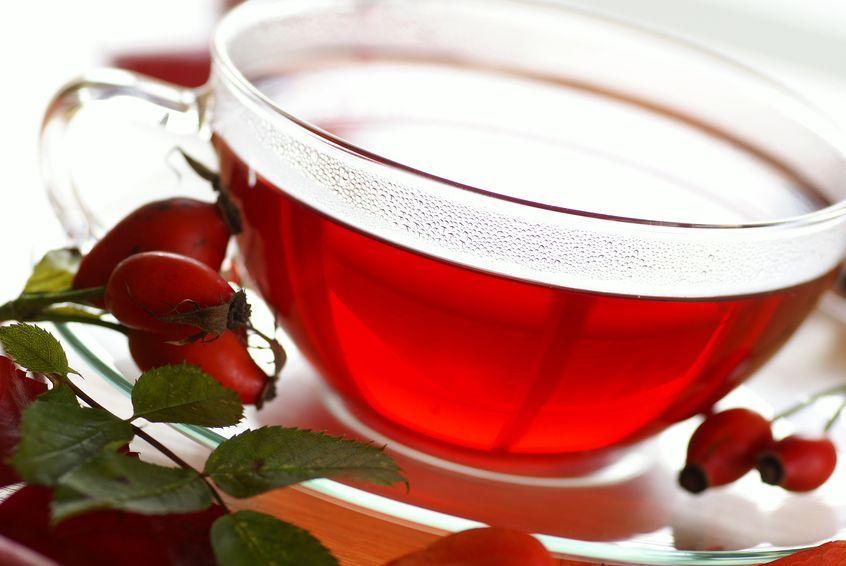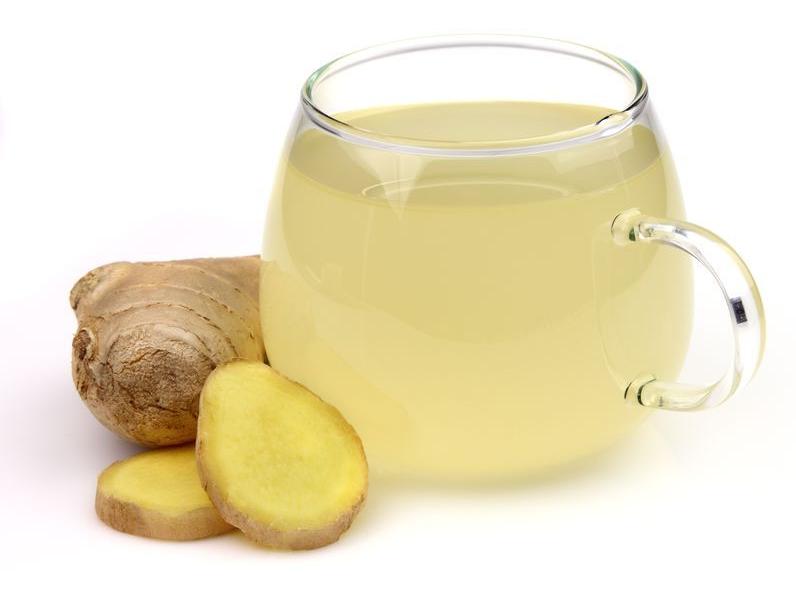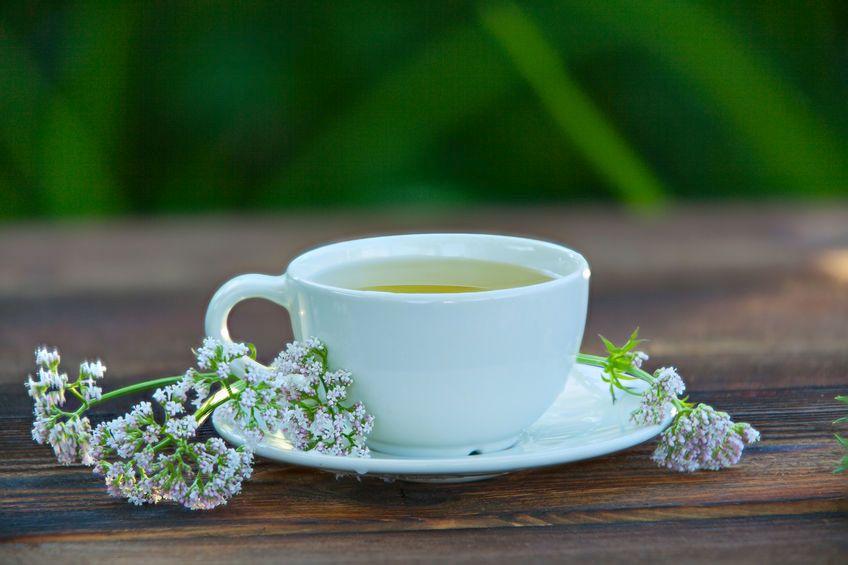In the real sense of the word, an herbal tea is not actually a tea because it does not contain theine. It is an extraction or a decoction that is obtained by having flowers, leaves or roots of the plant infused into (hot) water with the intention of dissolving the volatile or easily soluble substances in the water.
On the drinks list of the better catering business or coffee bar you will often find these preparations under the heading of infusions. The French call them tisanes, which sounds a lot more poetic and appetizing.

A cup of phytotherapy
The phytotheriapie or herbal medicine in which medicinal herbs are used to combat or remedy all kinds of ailments, already existed in the oldest civilizations we know. With the Egyptians, for example, but also in India, China and Peru.
Drinking tisane, infusion or herbal teas is the ideal way to enjoy the beneficial and sometimes therapeutic effects of a plant. Provided, of course, that such a tea is prepared with qualitative and botanical raw materials, and that the herbs are left whole and are not too fragmented. The latter is important to preserve as many essential oils as possible, which contain the medicinal properties. When the plant is broken, some of them are lost. (Dried) herbs that are hermetically packaged can be stored longer (up to a year) than herbs that are sold in bags.
How to make herbal teas?
Herbal tea can be made from both the fresh and the dried plant. There are actually three methods by which you can proceed: an infusion, a maceration or a decoction.
- Infusion: you pour hot water on the (dried) herb and let it infuse for a few minutes. The same preparation process as with real tea.
- Maceration: you let the herb infuse for a number of hours in cold water.
- Decoction: you boil water with the herb in it for a few minutes.
Some species whose efficiency is believed to have been proven

Medicinal properties are attributed to many types of herbal teas. They would promote digestion, help curb anxiety or stress, or improve sleep...
Scientific research is still being conducted to find out whether that reputation for truth can be assumed. However, there are already five types of herbal teas that can present a proof of effectiveness that shows fewer holes. We want to highlight them. Not only because more is already known about this, but also because they have very few side effects.
- Ginger tea against nausea
Ginger has a reputation for helping against nausea and vomiting, that it promotes digestion and that it acts as an anti-inflammatory, including for colds.
Scientific research has revealed that ginger probably helps against nausea. That it would also be a therapeutic remedy for fatigue and digestive problems has not yet been 100% proven.
How to make ginger tea?
Let 3 grams of dried ginger root boil for about 20 minutes with a cup of water. Filter out the ginger and put the tea in a cup. Drink a cup three times a day after each meal until symptoms are gone. - Melissa tea as an anxiety inhibitor
In the case of melissa, the scientific findings are that it probably helps against anxiety and that it has sleep-promoting properties. Often it is also drunk against cold sores (herpes labialis), but no conclusive effect has yet been shown to be a remedy for that problem.
How to make tea from lemon balm? Let about 4 leaves infuse in hot water for 5 to 10 minutes. - Peppermint tea against irritable bowel syndrome
Peppermint is a variant of the spearmint and it has a mild, soft taste. The herb is known for its digestive qualities and is said to help with nausea, bloating and abdominal cramps. The active ingredients - an essential oil rich in menthol, tanine and flavonoids - are mainly found in the leaves of the plant. About this, the scientists say that it is believed to be an effective remedy for irritable bowel syndrome. How to make peppermint tea? Leave to infuse about 25 grams of leaves - fresh or dried - in a liter of boiling water for 10 minutes. Strain the tea and drink a cup after each meal. - Valerian tea as a sleeping aid

Valerian or catnip is a slightly lesser known plant that is mainly used by people who suffer from problems falling asleep, anxiety, irritability, headaches, depression, irregular heartbeat and trembling. Often, antioxidant properties are also attributed to the plant. The active ingredients and essential oils are mainly in the root.
The scientific finding for this herb is that it probably lends a hand when falling asleep and that it also possesses anxiolytic (anxiety-reducing) properties. However, the plant is not compatible with alcohol, with opioids (strong painkillers) and with medicines that reduce anxiety such as benzodiazepines (for example valium).
How to make valerian tea? Let 40 to 50 g of dried and crumbled carrot boil with a liter of water for 20 minutes. Filter the tea and drink a glass after each meal or before bedtime. - Nettle tea as a diuretic
Even the nettle, which we often consider to be an annoying weed, is a plant with strong medicinal properties. Rather, his fame has to do with its anti-inflammatory and analgesic effect. Nettles are said to be a diuretic and therefore also designated as complementary treatment in gout. What does scientific research say about this? In all likelihood, the nettle has diuretic properties, and the plant is also effective in the treatment of benign prostatic hypertrophy (an enlarged prostate). That nettle would also be efficient as a painkiller has not yet been proven. In a number of rare cases, people are allergic to nettle tea.
How to make nettle tea? Leave 2 to 3 tablespoons of dried carrot to infuse in a cup of hot water for 5 to 10 minutes.
A number of other species that are touted by some researchers as beneficial or therapeutic are herbal teas based on rooibos, rosehip, hibiscus and turmeric (turmeric).
- Rooibos: it is claimed by some that this plant boosts the immune system and helps to prevent cancer. It is also being investigated whether rooibos has beneficial properties for the heart and whether it can be used against diabetes.
- Rosehip: this plant is a source of vitamin C and could also be an antioxidant and anti-inflammatory. However, beware because certain people are allergic to these sperm pods or get upset stomach from them.
- Hibiscus: tea from the hibiscus flower contains many antioxidants. Some concise studies also showed that it can lower blood pressure. Whether it also has a cholesterol-lowering effect has not yet been sufficiently demonstrated at the moment. If you drink this tea in moderation, it can certainly hurt for nothing.
- Turmeric: people sometimes use this plant to treat kidney stones, but there is no scientific evidence that it can play a beneficial role in this. Study material shows that it can help in animals to prevent cancer and relieve inflammation, but there is no evidence yet that these effects also manifest themselves in humans. Those who are in treatment with chemotherapy should definitely be careful with this tea and ask for doctor's advice before experimenting themselves.



